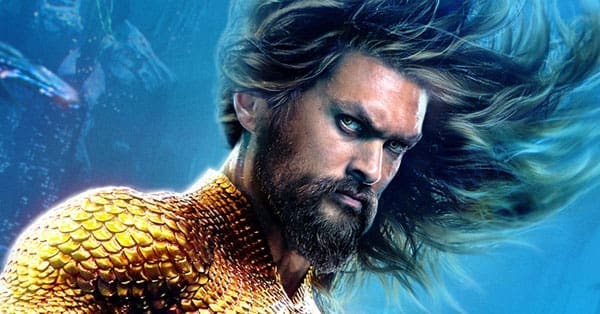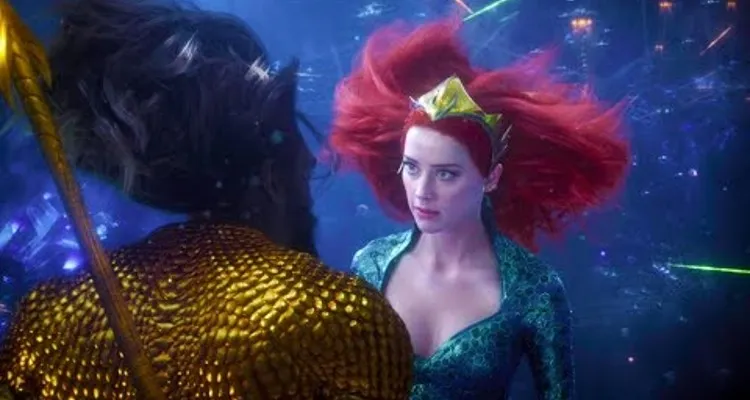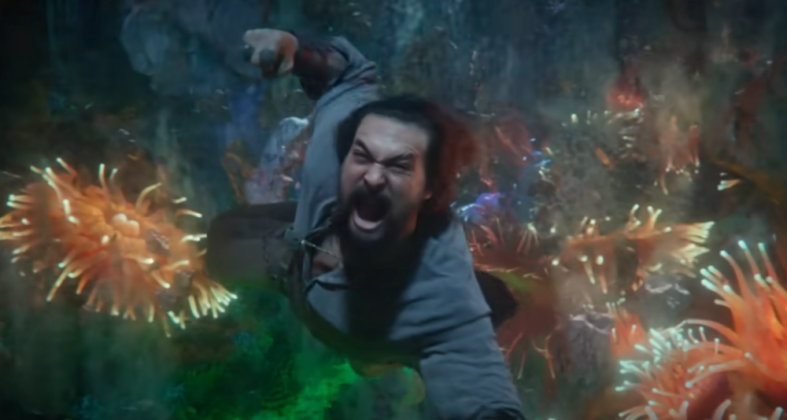
In the aftermath of James Wan’s highly successful Aquaman, the sequel, “Aquaman and the Lost Kingdom,” has stirred controversy, with early reviews indicating a departure from its superhero roots towards heavy-handed climate change propaganda. As fans already were soured on the final installment in the DC Extended Universe (DCEU) timeline, more concerns have arisen about the film’s alleged leftist messaging, raising questions about the balance between entertainment and political agendas.
The sequel unfolds with Black Manta’s quest for revenge, driven by the power of the mythic Black Trident. As the narrative unfolds, a perceived political agenda takes center stage, with the film emphasizing a climate change threat linked to an ancient source of fuel. The storyline’s departure from traditional superhero tropes has left fans questioning the incorporation of real-world issues into the fictional universe.

While “Aquaman and the Lost Kingdom” continues James Wan’s tradition of delivering visually stunning spectacles in the DCU, the heavy reliance on CGI has become a point of contention for some fans and critics. The underwater sets, although visually impressive, lack realism, contributing to a disconnect for audiences. The sequel introduces creatures reminiscent of horror influences, yet the abundance of visual effects may undermine the film’s overall impact.
Jason Momoa’s DCU performance as Aquaman sadly takes a back seat to the film’s political undertones. The narrative’s emphasis on climate change as a central theme detracts from the character dynamics, with fans expressing disappointment over the perceived injection of leftist messaging into the superhero genre.
“Aquaman and the Lost Kingdom” pushes a left-wing climate change message, presenting it as the film’s primary threat. The inclusion of a heavily politicized real-world issue with a comic book twist has sparked criticism, with fans expressing frustration over what they perceive as an imposition of leftist ideologies in a traditionally apolitical genre. This echoes a lot of what DC Comics has done in their recent books, which has contributed to comic book sales collapsing industry-wide.

RELATED: Mark Waid Admits ComicsGate Was Right: There Are Massive Problems In The Comic Industry
Early reviews indicate a polarized reception, with a notable Rotten Tomatoes score of 36% at the time of writing. Fans who appreciate traditional superhero narratives express disappointment over the film’s departure from genre norms. The infusion of climate change messaging has led to debates about the appropriateness of such themes in superhero films and the impact on the overall viewing experience.
As the film’s release approaches, controversy intensifies regarding the alleged leftist messaging and the decision to incorporate real-world issues into the superhero narrative. Some fans argue that superhero films should offer an escape from political agendas, expressing frustration over what they perceive as a forced injection of ideologies into the cinematic experience.

“Aquaman and the Lost Kingdom” faces an uphill battle as it navigates the delicate balance between superhero escapism and political messaging. The clash between traditional fan expectations and the film’s climate change narrative raises questions about the evolving landscape of superhero cinema and the challenges associated with incorporating real-world issues into fictional universes. As the DCEU grapples with fan backlash, the film’s reception may serve as a pivotal moment in shaping the future of superhero storytelling.
What do you think of initial reviews of the DCU Aquaman and the Lost Kingdom from Warner Bros.? Leave a comment and let us know.
NEXT: Graham Nolan And Mark Millar Agree The Indie Comics Scene Needs Marvel And DC Comics To Survive

Seems ghey and fake. Fake and ghey, one might say. Very ghey.